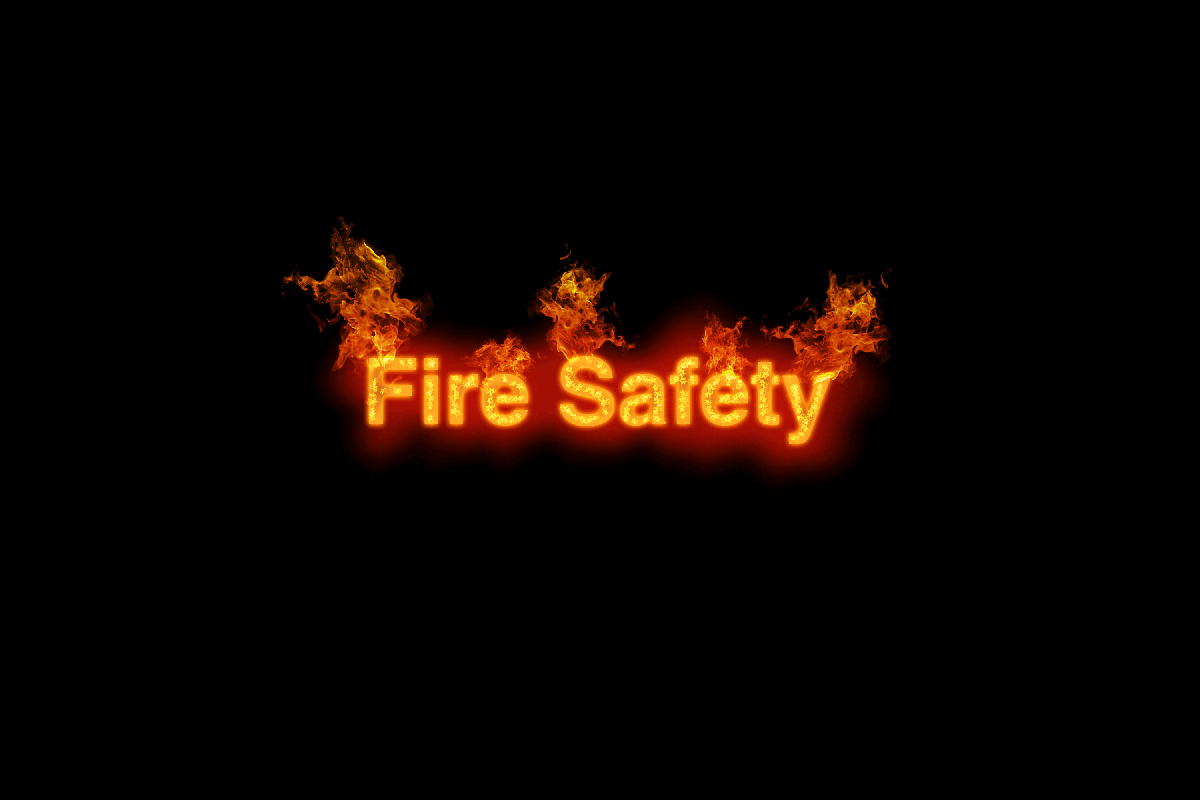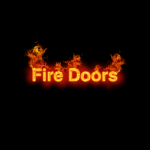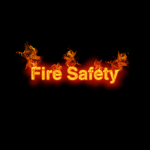Every Responsible Person (e.g. employer, landlord, managing agent) in the UK has a legal obligation to ensure that their property meets the fire safety regulations set out in the Regulatory Reform (Fire Safety) Order 2005. This legislation outlines the precautionary steps that should be taken to ensure that the residents of a building stay safe in case of a fire outbreak.
To fully comply with the fire regulations, there are certain steps that you should take, such as carrying out a fire risk assessment, implementing fire safety protocols, and ensuring that appropriate arrangements are in place for managing fire safety and evacuation.
A fire outbreak often leads to a lot of chaos and confusion. While some people scamper for safety, you will often find others rushing to save their valuables.
In the confusion that arises in the wake of a fire, the people in your building may not remember the fire safety protocols that should be followed, such as following an evacuation plan. When procedures aren’t followed, firefighting efforts can become more arduous, not to mention that the safe evacuation of people in the burning building may be further compromised.
While the law does not specifically require a role titled “fire marshal” or “fire warden”, the Responsible Person must ensure that suitable arrangements are in place to manage fire safety and evacuation. Appointing trained fire marshals or wardens is a widely recognised way of meeting these duties in practice.
Contents
- 1 What is a Fire Marshal?
- 2 Fire Marshals and Recent Fire Safety Regulations
- 3 What is a Fire Warden?
- 4 What is the Difference Between a Marshal and Warden?
- 5 What Are the Roles of a Fire Marshal?
- 6 What Does Fire Marshal Training Entail?
- 7 FAQ
- 7.1 Is a Fire Marshal or Fire Warden a Legal Requirement?
- 7.2 Who Can Act as a Fire Marshal or Fire Warden?
- 7.3 How Many Fire Marshals Are Required in a Building?
- 7.4 What Are the Main Duties of a Fire Marshal?
- 7.5 Do Fire Marshals Replace a Fire Risk Assessment?
- 7.6 How Often Should Fire Marshal Training Be Refreshed?
- 7.7 Can Fire Marshals Use Firefighting Equipment?
What is a Fire Marshal?
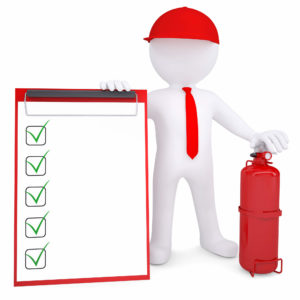 A fire marshal is primarily responsible for the identification of potential fire hazards in a building. The marshal is usually identified and appointed by the Responsible Person – the individual in charge of the overall fire safety arrangements for the premises.
A fire marshal is primarily responsible for the identification of potential fire hazards in a building. The marshal is usually identified and appointed by the Responsible Person – the individual in charge of the overall fire safety arrangements for the premises.
As the proprietor of a business or business manager, you may be the Responsible Person for fire safety compliance in your workplace.
After identifying potential fire risks in the workplace, a fire marshal has a duty to inform the business owner or Responsible Person of the risks so that appropriate fire safety measures can be implemented.
A fire marshal also has the responsibility of ensuring that all the people in a building leave the building quickly and safely when a fire occurs. They may also assist in ensuring that the immediate area around the building is kept clear to support emergency response activities.
Fire Marshals and Recent Fire Safety Regulations
While the core legal framework remains the Regulatory Reform (Fire Safety) Order 2005, fire safety management duties have been strengthened in recent years through the Fire Safety Act 2021 and the Fire Safety (England) Regulations 2022. These changes place greater emphasis on effective fire safety arrangements, clear responsibilities, and competent persons supporting evacuation and fire safety procedures. Fire marshals and wardens often play a key role in supporting Responsible Persons in meeting these duties.
What is a Fire Warden?
A fire warden ensures that there are no people left inside a building once an evacuation has been carried out. The fire warden may carry out a headcount where appropriate to help confirm that occupants are accounted for.
The warden is responsible for ensuring that no one approaches the evacuated building until it has been declared safe by the fire and rescue service. Additionally, they may also take charge of organising and conducting fire drills as part of the site’s fire safety arrangements.
What is the Difference Between a Marshal and Warden?
The Regulatory Reform (Fire Safety) Order 2005 does not formally distinguish between the roles of a fire marshal and fire warden. The legislation requires that the Responsible Person puts appropriate fire safety arrangements in place, but it does not prescribe specific job titles.
As an employer or building manager, you can choose to appoint fire wardens, fire marshals, or both, depending on the size and complexity of the premises. Where only one role is appointed, that individual may carry out a combination of duties typically associated with both roles. Where multiple people are appointed, the Responsible Person should clearly define their responsibilities to ensure effective fire safety management.
What Are the Roles of a Fire Marshal?
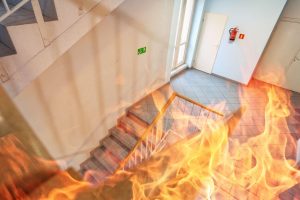 The roles of a fire marshal can be broadly classified into two categories: day-to-day roles and responsibilities in case of an emergency.
The roles of a fire marshal can be broadly classified into two categories: day-to-day roles and responsibilities in case of an emergency.
The number of fire marshals required and the extent of their duties will depend on the size, layout, use, and risk profile of the premises. Larger, multi-storey, or complex buildings may require multiple marshals across different areas or shifts to ensure adequate coverage at all times.
Responsibilities of a Fire Marshal on a Daily Basis
- Ensuring that all evacuation routes to be used in case of fire remain unobstructed
- Carrying out routine housekeeping to get rid of materials that pose the risk of a fire, such as rubbish
- Checking to see that hazardous/flammable materials are properly stored
- Making sure that fire safety signs are properly placed
- Ensuring that emergency evacuation signs are functioning properly
- Ensuring that all firefighting equipment is properly stored and regularly serviced
- Checking to see that fire detection equipment and fire alarms are functioning optimally in line with site procedures
- Nominating deputies who will help ascertain that the building is fully compliant with fire safety regulations
- Mapping evacuation routes to be used in case of a fire
- Determining fire assembly points
- Arranging and conducting fire drills
- Training new employees on the fire safety protocols to be followed in the event of a fire
- Ensuring that electrical connections are tested where this forms part of the site’s fire safety arrangements
- Maintaining records on any fire safety activities carried out in the building
Responsibilities of a Fire Marshal in a Fire Emergency
- Raising the alarm when a fire starts
- Ensuring that fire doors and doors to other fireproof spaces are closed
- Ensuring that people who have vulnerabilities are assisted in evacuating safely, in line with agreed procedures
- Carrying out a roll call where appropriate to help confirm evacuation
- Liaising with emergency response personnel who respond at the scene of the fire
- Using firefighting equipment only where trained to do so and where it is safe
What Does Fire Marshal Training Entail?
Any individual who occupies a fire marshal position should receive training on the different types of fire hazards, including how to respond in case of a fire, how to use different types of firefighting equipment, the roles of a marshal, and the current fire safety regulations. During the training, you can expect to undertake theory classes as well as practical guides.
The duration of a fire marshal course can vary depending on the extent of the areas to be covered. Trained professionals with appropriate competence and experience should deliver the training.
After completing the fire marshal training, you should receive a certificate that shows you have the requisite training to handle fire marshal duties. Fire marshal training should be refreshed regularly to ensure knowledge remains current. While many organisations renew training every three years, more frequent refresher training may be appropriate where fire risks are higher or where building layouts or occupancy change.
Topics Covered During Fire Marshal Training
If you are looking to become a designated fire marshal, your training course will cover a wide range of topics, including (but not limited to):
- Arson
- Fire statistics
- Current fire safety regulations
- How fires spread
- The main causes of fire and the fire safety precautions that should be implemented
- The different types of fire detection and warning systems
- The different types of firefighting equipment
- How to operate firefighting equipment
- How to identify the best evacuation routes
- The roles and duties of a marshal
FAQ
Is a Fire Marshal or Fire Warden a Legal Requirement?
The law does not require a specific role titled “fire marshal” or “fire warden”. However, under the Regulatory Reform (Fire Safety) Order 2005, the Responsible Person must ensure that appropriate arrangements are in place to manage fire safety and evacuation. Appointing trained fire marshals or wardens is a widely recognised way of meeting these duties in practice.
Who Can Act as a Fire Marshal or Fire Warden?
A fire marshal or warden can be an employee or other suitable person appointed by the Responsible Person. They should be given adequate training, authority, and time to carry out their duties effectively. The suitability of the individual will depend on the size, layout, and fire risk profile of the premises.
How Many Fire Marshals Are Required in a Building?
There is no fixed number set out in law. The number of fire marshals required depends on factors such as the size of the building, number of occupants, layout, working patterns, and fire risks identified in the fire risk assessment. Larger or multi-storey premises may require multiple marshals across different areas or shifts.
What Are the Main Duties of a Fire Marshal?
Fire marshals support the Responsible Person by helping manage fire safety arrangements. Their duties typically include monitoring escape routes, identifying fire hazards, supporting evacuation during an emergency, assisting vulnerable occupants where appropriate, and liaising with emergency services if required.
Do Fire Marshals Replace a Fire Risk Assessment?
No. Fire marshals do not replace the need for a suitable and sufficient fire risk assessment. Instead, they support the ongoing management of fire safety arrangements identified by the assessment and help ensure procedures are followed in practice.
How Often Should Fire Marshal Training Be Refreshed?
Fire marshal training should be refreshed regularly to ensure knowledge remains current. While many organisations refresh training every three years, more frequent refresher training may be appropriate where fire risks are higher, building layouts change, or staff turnover is significant.
Can Fire Marshals Use Firefighting Equipment?
Fire marshals may use firefighting equipment only if they have been trained to do so and it is safe in the circumstances. Their primary role is to raise the alarm and support safe evacuation, not to fight fires.

